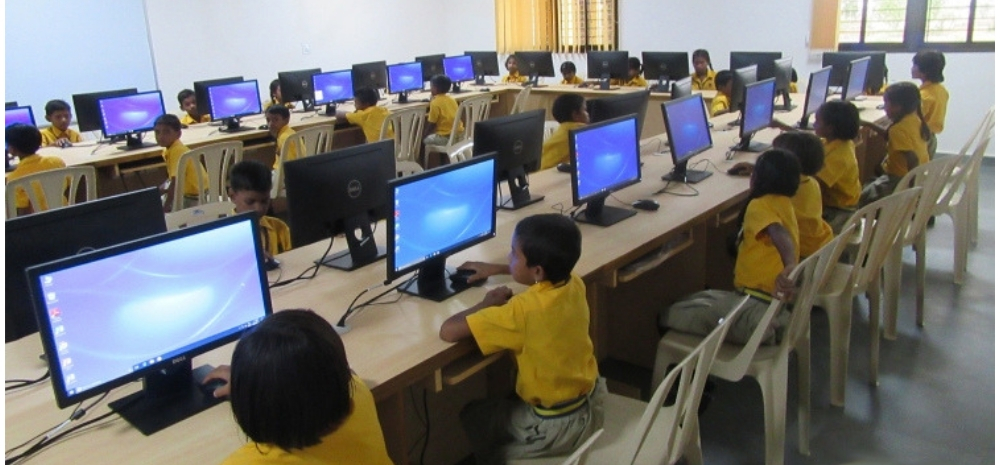This is an exclusive blog by Mr. Beas Dev Ralhan, CEO, Next Education
The need for educational transformation is particularly pressing in the diverse and rapidly changing landscape. As India strives to maintain its position on the global stage as a hub for technology, innovation, and entrepreneurship, traditional educational methods are gradually giving way to more dynamic approaches like project-based learning.

This approach aligns with the government’s vision of promoting holistic and experiential learning. In a society where memorisation and rote learning have historically been emphasised, project-based learning is helping to shift the focus towards nurturing critical thinking skills, creativity, and problem-solving abilities among students. By engaging students in hands-on projects and real-world challenges, India’s education system is fostering a generation of learners who are better equipped to adapt to the ever-evolving demands of the modern world.
The Evolution of K-12 Education: A Paradigm Shift
Recent years have witnessed a profound transformation in the landscape of K-12 education, and at its core is Project-Based Learning. This innovative educational approach has gained prominence for its exceptional ability to captivate students in a dynamic and immersive learning experience that surpasses traditional classroom instruction. By placing students at the centre of their learning journey, Project-Based Learning not only fosters critical thinking and problem-solving but also instils a lifelong passion for exploration and discovery. It prepares students to thrive in an ever-evolving world where adaptability and creativity are prized skills.
Understanding Project-Based Learning: What Is It Exactly?
At its core, Project-Based Learning is an educational approach that takes students from mere spectators to active participants. It involves hands-on experiences where students work collaboratively to explore real-world challenges and develop practical solutions. This method ignites curiosity, encourages inquiry, and cultivates a sense of ownership over the learning process.
Importance of Project-Based Learning garnering attention across the industry
- Fosters Creativity and Lifelong Learning
Project-based learning (PBL) nurtures creativity as students tackle open-ended challenges, encouraging out-of-the-box thinking and innovative problem-solving. This equips them with the complexities of the modern workforce and fosters a lifelong love for learning. Leading Edtech companies are spearheading educational transformation by integrating PBL into their pedagogical approaches. Advanced software seamlessly weaves PBL across subjects, offering a unified K-12 education approach. It fosters collaborative learning, nurturing critical thinking and empowering students to tackle real-world issues. This holistic approach aligns with evolving educational needs, preparing students for success in an ever-changing, interconnected world.
- Fosters Collaboration and Teamwork
Project-based learning promotes collaboration and teamwork. Students collaborate on projects, not only gaining academic knowledge but also learning to respect diverse perspectives and work cohesively toward a common goal. These essential interpersonal skills are invaluable in the 21st-century job market, where teamwork and effective communication are highly valued for success in various professional endeavours.
- Enhances Problem-solving skills
Project-Based Learning goes beyond theoretical knowledge to enhance essential problem-solving skills. Confronting students with real-world issues that often lack a single right answer fosters a mindset of adaptability and resilience. This ambiguity encourages them to analyse, synthesise, and innovate, honing their critical thinking abilities, which are indispensable in navigating the complexities of our ever-evolving world. These skills empower students not only academically but also in their future careers and personal lives.
- Takes a student-centric approach
Furthermore, Project-Based Learning is in harmony with the contemporary move towards student-centered education. Educators are increasingly acknowledging the significance of customising learning experiences to suit individual student needs, and Project-Based Learning facilitates this personalisation by accommodating diverse learning styles and paces.
In parallel, Edtech platforms are leveraging the latest software capabilities, employing AI-driven evaluations alongside Smart Concept and Smart Revision Tests. This strategic use of technology optimises student-centric learning by offering targeted remediation and resource allocation, ensuring that each student can flourish and reach their full potential in an educational landscape that embraces diversity and individuality.
Final Thoughts
In the broader context of K-12 education, Project-Based Learning represents a significant leap towards preparing students not just for the present but for an uncertain future. It equips them with crucial skills—adaptability, creativity, collaboration, and critical thinking—that are essential for success in an ever-changing world. As education continues to evolve to meet the demands of the 21st century, adopting Project-Based Learning is poised to play a pivotal role in shaping the next generation of learners, thinkers, and innovators, ensuring they are not just knowledgeable but also agile and ready to thrive in the challenges and opportunities that lie ahead.













